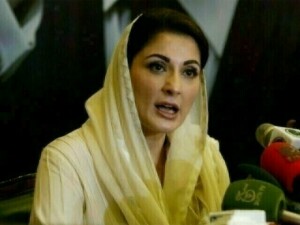ISLAMABAD: Power sector experts and thought leaders have emphasised that Pakistan’s energy woes can be curbed only through innovation and targeted investments.
They expressed this assertion during an insightful and interactive policy dialogue on “Revitalising Pakistan’s Power Sector,” jointly organised by NUST US-Pakistan Center for Advanced Studies in Energy (USPCAS-E) and NUST University Advancement Office.
Prominent amongst the panelists were Shah Jahan Mirza, Managing Director - PPIB, Rafique Ahmed Shaikh, Member Technical – NEPRA, and Ms Sadia Dada, Chief Marketing & Communications Officer K-Electric.
The dialogue encompassed diverse topics, viz. transition to renewable energy, technological advancements, circular debt management, tariff structure balancing, international policy influence, investment approaches, resilient policy formulation and collaborative regulatory considerations. It focused on the reasons behind the exorbitant cost of electricity across the country and the recommended path forward for maintaining the correct trajectory.
Principal USPCAS-E Dr Adeel Waqas underscored the urgency of addressing Pakistan’s power sector challenges through innovation and global cooperation. Shah Jahan Mirza shed light on some important statistics vis-à-vis Pakistan’s current fuel mix.
He stated that at national level, 23.58% of electricity is being produced through hydro, 29.61% through Gas/RLNG, 16.18% through furnace oil, and 16.10% through coal, while nuclear and renewable energy have 8.03% and 6.51% share respectively.
While highlighting future activities planned by PPIB, he said that assistance to SBP is being provided in the revision of Financing Scheme for Renewable Energy for broader consumer categories; renewable energy based mini/micro grids are being established in urban and rural areas; and the capacity of DISCOs is being built with GIZ support to facilitate improved management of electricity grid keeping in view the increasing share of variable RE.
Ms Sadia Dada termed electricity theft and currency devaluation as one of the biggest challenges facing the power sector of Pakistan. She maintained that the power sector must focus on overcoming the energy trilemma revolving around the availability, accessibility and affordability of electricity.
To achieve this end, the power industry must integrate new solutions and ensure targeted investments. She further said that keeping in view the rising power demand, K-Electric plans to invest additional 484 billion rupees for the next 7 years, which would add 2,172 MW to its generation capacity, including 1,182 MW of renewables.
Rafique Ahmed Sheikh said that unfortunately one of the underlying reasons of low recovery in distribution companies is obsolete structure. He said that it is imperative to make investments in the power sector to address current and impending energy challenges.
Copyright Business Recorder, 2023






















Comments
Comments are closed.